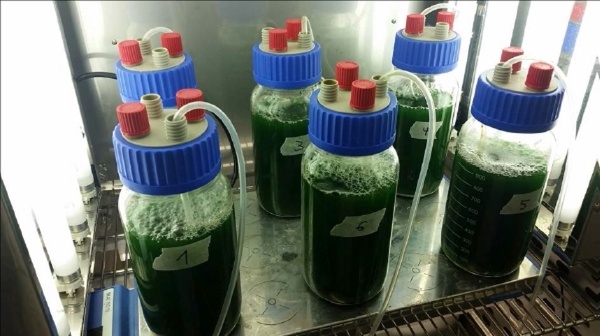The project is placed within the EU Framework Program for Research and Innovation Horizon 2020 with partners from North and South America. Main objective is the development of a bioremediation process (filter module) for the removal of the dye rhodamine B used in the agate processing industry of southern Brazil with microalgae species as adsorbent, involving researchers from Ostfalia (Dr. Sander), University of Wisconsin at Parkside (Prof. Skalbeck) and Universidad Federal de Santa María (Prof. Carissimi). Preliminary results found, that the filter materials designed to support the process are effective in treating heavy metal contaminated waters. Bioremediation processes developed should preventively protect the public from the health risks posed by the dyes used in the agate processing industry and, in further steps, organic pollutants and improve water quality.
The environmentally friendly and cost-effective process approach for wastewater treatment should have the potential to cost-effectively enable residue-free decontamination of other organic pollutants in wastewater also within the EU (waste water treatment, 4th stage of purification). Thus, continued work with an extended circle pf partners from TAMK, Tampere, Finland and others within Horizon 2020 is planned.
 Cultivation of endemic algal species for test on bioremediation efficiency
Cultivation of endemic algal species for test on bioremediation efficiency
Please contact Dr. agr. Hedda Sander for more information on this international activity.